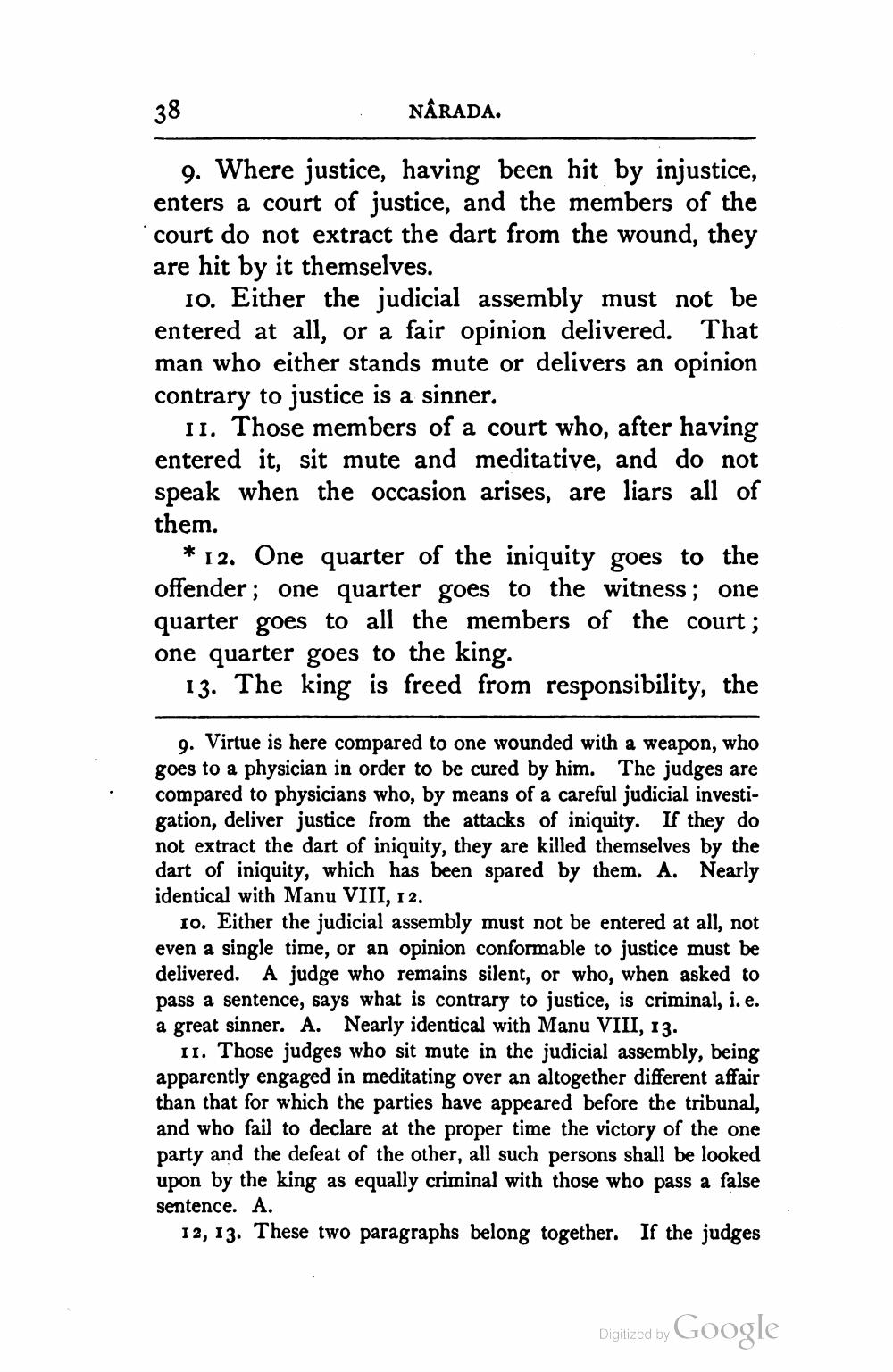________________
38
NÂRADA.
9. Where justice, having been hit by injustice, enters a court of justice, and the members of the court do not extract the dart from the wound, they are hit by it themselves.
10. Either the judicial assembly must not be entered at all, or a fair opinion delivered. That man who either stands mute or delivers an opinion contrary to justice is a sinner.
11. Those members of a court who, after having entered it, sit mute and meditative, and do not speak when the occasion arises, are liars all of them.
*12. One quarter of the iniquity goes to the offender; one quarter goes to the witness; one quarter goes to all the members of the court; one quarter goes to the king.
13. The king is freed from responsibility, the
9. Virtue is here compared to one wounded with a weapon, who goes to a physician in order to be cured by him. The judges are compared to physicians who, by means of a careful judicial investigation, deliver justice from the attacks of iniquity. If they do not extract the dart of iniquity, they are killed themselves by the dart of iniquity, which has been spared by them. A. Nearly identical with Manu VIII, 1 2.
10. Either the judicial assembly must not be entered at all, not even a single time, or an opinion conformable to justice must be delivered. A judge who remains silent, or who, when asked to pass a sentence, says what is contrary to justice, is criminal, i.e. a great sinner. A. Nearly identical with Manu VIII, 13.
11. Those judges who sit mute in the judicial assembly, being apparently engaged in meditating over an altogether different affair than that for which the parties have appeared before the tribunal, and who fail to declare at the proper time the victory of the one party and the defeat of the other, all such persons shall be looked upon by the king as equally criminal with those who pass a false sentence. A.
12, 13. These two paragraphs belong together. If the judges
Digitized by Google




